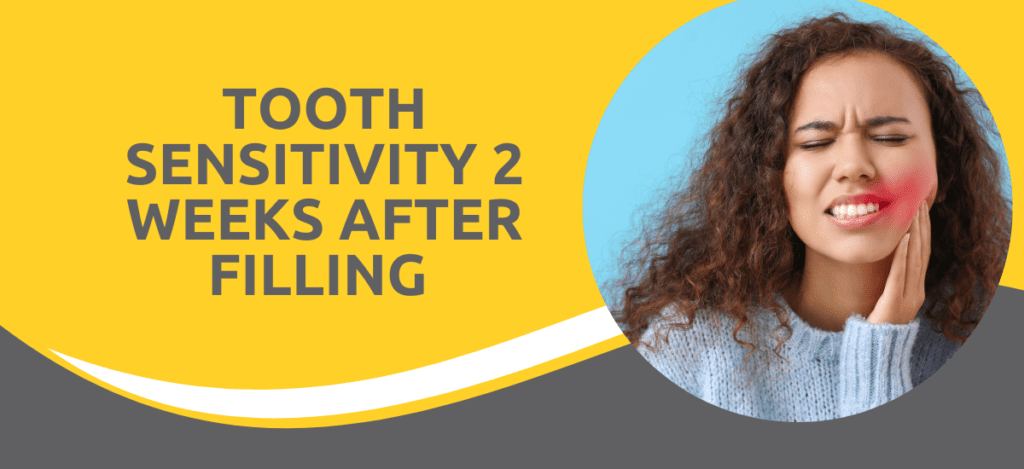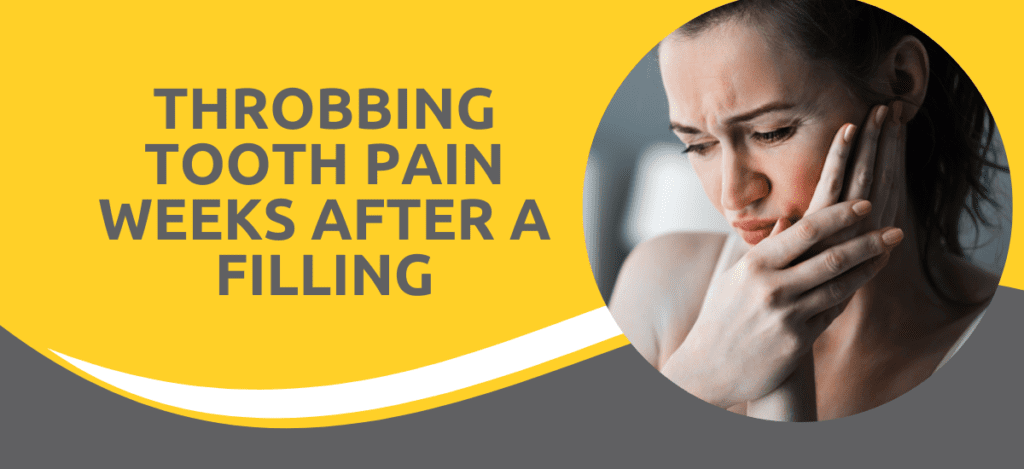
Dental health issues can significantly disrupt daily life, especially when discomfort persists even after treatment. A filling is a standard procedure to address decay or damage, but the following sensitivity can sometimes linger longer than expected. According to global statistics:
- Nearly 40% of adults experience some form of tooth sensitivity after dental procedures
- Nearly 15% of individuals who undergo dental fillings report sensitivity lasting beyond the initial healing period
Dr. Dheeraj Punjabi of Dental Krafts, a state-of-the-art Dental Clinic in Govandi, Mumbai, says:
“Feeling your teeth sensitive 2 weeks after filling can be frustrating, leaving you wondering if something went wrong and even anxious about recovery. Whether a sharp twinge when sipping a hot beverage or a dull ache after eating something cold, tooth sensitivity post-filling is a manageable concern when addressed promptly.”
While this condition often resolves on its own, understanding its nature can help alleviate worries and guide appropriate care.
Are you unsure if your sensitivity is normal or concerning? Let’s delve into the details and clear up the confusion.
Understanding Tooth Sensitivity 2 Weeks after Filling
When tooth pain persists two weeks after a filling, it often stems from the tooth adapting to the new material. Fillings require drilling, which can irritate the nerves inside the tooth. In some cases, the depth of the cavity or proximity to the nerve can exacerbate sensitivity.

Dr. Dheeraj Punjabi, a renowned dentist in Mumbai, explains:
“The materials used for fillings—composite, amalgam, or ceramic—expand and contract with temperature changes, potentially leading to discomfort. However, this usually subsides with time as the tooth adjusts.”
Most people notice a gradual improvement, but if the sensitivity worsens or is accompanied by pain, it could indicate an underlying issue.
Are you finding it hard to enjoy your meals due to post-filling sensitivity? Consult a dentist to address your discomfort and restore oral health.
So, why does sensitivity linger? Let’s delve into the causes.
Causes of Tooth Sensitivity After Filling 2 Weeks Later

Tooth sensitivity can stem from various factors, including:
Nerve Irritation: Deep cavities close to the tooth’s nerve can trigger prolonged sensitivity.
High Filling: If the filling is not aligned correctly, it can put extra pressure on the tooth, leading to pain.
Pulp Inflammation: The drilling process can inflame the tooth pulp, especially if the cavity is extensive.
Material Used: Certain filling materials may conduct heat and cold more efficiently, causing heightened sensitivity.
Bite Adjustment: If the bite feels uneven after the procedure, it might need correction.
Pre-existing Issues: Cracks or underlying infections not addressed during the filling procedure might exacerbate sensitivity.
Dr. Punjabi, a seasoned dentist in Govandi, highlights:
“Not all sensitivity is caused by the filling itself. Sometimes, adjacent teeth may react to the procedure or changes in your bite alignment, requiring further adjustments. Ignoring sensitivity can lead to severe complications like cracked fillings, nerve damage, or even the need for a root canal. Timely evaluation is crucial.”
Let’s explore some effective remedies to manage the discomfort at home.
Tips to Relieve Tooth Sensitivity at Home

You can often manage mild tooth sensitivity with simple, at-home strategies:
Desensitizing Toothpaste: For sensitive teeth, use a desensitizing toothpaste containing compounds like potassium nitrate or stannous fluoride. These ingredients block nerve signals, helping reduce discomfort from hot, cold, or sweet foods.
Saltwater Rinse: A simple warm saltwater rinse helps combat inflammation, ease minor infections, and provide temporary pain relief. It’s especially helpful if the sensitivity is caused by irritated gums or slight trauma post-filling.
Clove Oil Application: Clove oil is a natural analgesic and antiseptic. Applying a small amount to the sensitive tooth can numb the area and ease pain. It’s a traditional remedy still widely used.
Avoid Extreme Temperatures: Limit consumption of very hot or cold beverages and foods. Sticking to room temperature or lukewarm meals helps prevent stimulation of sensitive nerve endings.
Gentle Brushing: Switch to a soft-bristled toothbrush and use gentle circular motions. Brushing too hard can wear down enamel or irritate gums, worsening post-filling sensitivity.
Eminent dental professional Dr. Punjabi advises, “Home remedies can provide significant relief, but they’re not a substitute for a professional opinion if the sensitivity persists or worsens.”
Are you trying to manage sensitivity or toothache two weeks after a filling? Visit a dentist to ensure you’re effectively addressing the root cause.
Wondering when it’s time to seek professional help for tooth pain 2 weeks after filling? Here’s what you need to know.
When Should You See a Dentist?

While some sensitivity is normal, certain situations call for immediate professional attention:
There’s a persistent sharp or throbbing pain
Pain That Increases Over Time: If discomfort intensifies instead of subsiding, it could indicate an issue with the filling or the tooth itself.
Persistent Sensitivity Beyond 2 Weeks: Lingering sensitivity may point to an underlying problem, such as a cracked tooth or nerve damage.
Signs of Infection: Swelling, pus, or severe pain might indicate an infection that requires urgent care.
Ignoring these symptoms can lead to complications, such as the need for root canal treatment or further tooth decay. Seeking timely advice can help you avoid more invasive procedures down the line.
Conclusion
Tooth sensitivity 2 weeks after a filling can be unsettling, but understanding its causes and solutions can ease concerns. Proper aftercare and timely professional advice ensure a swift return to normalcy. Remember, your comfort and oral health are worth the extra attention.
Is tooth sensitivity disrupting your life post-filling? Schedule a consultation with a dentist for an accurate diagnosis and tailored solutions.
Let’s clear some common concerns and help you take proactive steps today.
Frequently Asked Questions
Should I be worried about tooth sensitivity after filling 2 weeks later?
Yes, mild sensitivity after a filling can last a couple of weeks. However, if it persists or worsens, it’s best to consult your dentist to rule out complications.
Can a high spot on a filling cause pain?
Absolutely. A high spot can put undue pressure on your tooth and surrounding teeth, leading to discomfort or pain. Your dentist can adjust the filling to resolve this issue.
Should I avoid certain foods after getting a filling?
Avoiding hard, sticky, or extremely hot and cold foods can help prevent sensitivity and protect the filling while the tooth adjusts. Stick to a balanced diet that minimizes discomfort.
Can untreated sensitivity after a filling lead to complications?
Yes, ignoring persistent sensitivity might lead to nerve damage, further decay, or the need for additional procedures like a root canal. A dentist can confirm with an examination and X-rays.
How do I know if my filling is cracked?
Signs of a cracked filling include sharp pain when biting, visible damage, and sensitivity that doesn’t improve. Visit a dentist immediately for evaluation.
What materials are less likely to cause sensitivity?
Composite resins are less likely to cause temperature-related sensitivity compared to amalgam. Discussing material options with your dentist can help you make an informed choice.
Reference Links:
https://www.aakaardentistry.com/
https://www.healthline.com/health/tooth-sensitivity-after-filling



